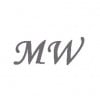How to Prove Ownership of Copyright on a Hub
- Will Apseposted 9 years ago
0
I haven't tried to have a plagiarized page removed from Google search since the change to the niches. How do we prove ownership if we no longer have access to webmaster tools for our pages?
My recent request was rejected on this basis:
'Thanks for reaching out to us.
It is unclear to us whether or not you are the authorized copyright agent for the content in question...'Those articles all appear on the basic stats page, which includes the dates when they were both written and updated. A simple screen shot of those figures is proof positive that you created the article. I have used this successfully in the past with not problems. I also always make sure to include a copyright notice on every article as added insurance.
The problem with screen shots is that they prove nothing because it's so simple to rub out stuff, change dates etc.
This has happened to me about half a dozen times recently. So I just reply to them to cop on and read the original article and look at my name at the top of the hub and it's obvious that I'm the author because my name tallies with my email address (or words to that effect!). It mightn't prove authorship, but they probably don't want to seem stupid or get into an argument with an irate author! So try some annoyance and patronisation, it works every time!
I included a wayback machine link in the original submission. That old page was on hubpages.com and now the page is on a niche site.
Not sure what the main problem is but I suspect they need more than I can give them.
I doubt if they would be impressed by a screen shot of the stats as Timetraveller2 suggests. What do Google know about HP's internal workings?
Anyway, open to more suggestions.If you select the niche site at the top of the page, then take a screen shot, it will show the name of the site at the top and all your Hubs on that site under it with their date of publication. That sounds clear enough to me.
The page was copied before it was moved to a niche but after the general change to niche sites.
Also I can't see screenshots of anything carrying any legal weight.
I mean I will try the best suggestions, but if anyone has any actual experience, I will take their advice.OK. TT2 did say she had been successful using the statistics page on several occasions, so prior to the niche sites it definitely worked.
What you need to do is prove you published it first, where it appears now doesn't really matter. So if you do a screen shot of the My Account page (which shows HubPages at the top) listing all your Hubs, that should work.
- Will Apseposted 9 years ago
0
The issue is copyright. They are saying they see no clear evidence that I am the copyright holder.
I could point them to HP's terms of service, which includes:
HubPages does not claim ownership of Your Hub Content or Author Content. Such content will be owned by You or a third party from whom You got permission to post the content.
It would be useful if HP included a full list of Network sites.
The bottom of each page says:
About Us Copyright
Copyright © 2016 HubPages Inc. and respective owners.
It would be useful if the page said:
Copyright Hubpages Inc., Author Name (whatever it is) and other respective owners
The fact that 'Will Apse' is a pseudonym might be complicating the issue.
Overall, I am still hoping for a simpler answer.There is a simple answer.
When I submit a DMCA, I almost always do it as Marisa Wright. That is not my real name, but you are not required to provide your birth certificate or otherwise prove you are a real person, so it's never been a problem. No one has ever queried it.
Once or twice, I've submitted under my real name and then added in the DMCA that the original article was written using my pen name. But I'm always hesitant to do that, because I'm always afraid they'll challenge me to prove I'm Marisa Wright, which would be difficult!
When they are asking you to prove copyright it's usually either because the name doesn't match, or they just want proof that you published it first (hence the stats page).
Also, why not put the suggested new copyright message in the New Features sectionI have always used my real name on DMCA complaints, even though it never appears anywhere on line. However, the team does have my real name on file, so if an issue ever would arise, they can provide this info as back up.
I sent them as short an explanation as humanly possible. See if it works.
I think I always used my real name on DMCA complaints too (because they pretty much ask that on that form, don't they?). (I only say "think" because while I'm pretty sure about the "always" part I just want to be safe by saying "think") It's been a while, but I don't recall any issues with using my real name on one line and then having the pen name/URL stuff in the lines like, "where can we see your published work". The DMCA form requires you to do that electronic signature, and that has to match what you entered as your name; and my most recent DMCA's have been with the pen-name stuff.)
Regardless, I had my "LHW" pen name on tax forms and other business-related stuff (not to mention a zillion other writing-type accounts) that also had my real name). Also, because there's been a "legal thing" in the background in my offline life, I've been super careful (kind of "paranoid") about aiming to establish a well rooted "trail of credibility" (although that has meant feeling essentially forced to compromise some of my own privacy - but in today's worlld there's a point where on sometimes just thinks, "whatever....".
I don't know anything about having stuff on the niche sties, so I don't have any useful suggestion about that (sorry). I know there may be the occasional time when, maybe, someone can't prove he's written something; or else it isn't worth following through with doing that. It may not be simple or easy, but usually, if it's worth following through on the person who has the truth on his side can/will find any number of different ways to prove it; because somewhere, beyond a few standard ways proving you wrote something, there's some point where the person who stole/copied something runs out ways to "prove it" while the person with the truth on his side won't (as long as he's willing to keep following through)). It just depends on whether it's worth it or not
Of course, I'm in the US so there's US tax stuff, banks, etc. and those are pretty much a good place to start with "well rooted trail of credibility". It's not a big jump from there to wherever any writing income/potential income is well established.
My real point is that you use your real name on a DMCA but then have all the other stuff in it show your pen name. I know that "point" doesn't help with the old, copied, Hub/new niche location issue. I just thought it might be general information for any long-time pen-name users.
I have always used my legal name on DMCA complaints. Because Google has that name on my AdSense account, they have never questioned that identity.
For DMCA complaints where my original publication site is no longer active, I have included the pertinent Wayback Macjphine URLs, and detailed explanations regarding the content violation, and so far, that has been successful for me.This is what I do too and it's always worked.
I suggest you also mention that the new site (nice site) is the same as Hubpages and they've selected your old arltice to be published on the new site (prove this by letting them know there's a 301 redirect in place). Apart from waybackmachine links.
- Will Apseposted 9 years ago
0
I am still having problems convincing the Google search team that I own copyright on the page concerned. Their communications are very cryptic and I still cannot work out what the issue is.
I sent them this email in reply to their email, mentioned in the OP:
'Hi,
I'm not sure exactly what the issue is but I reckon that I can convince you that I am the copyright owner.
The page that has been copied is currently on a Hubpages Network site. You can see the copyright declaration at the bottom of the page: https://kindredbond.com/parenting/Best- … ke-Trailer
On Hubpages, authors retain copyright of their work. You can check their TOS here: http://hubpages.com/help/user_agreement
It includes the statement: 'HubPages does not claim ownership of Your Hub Content or Author Content. Such content will be owned by You or a third party from whom You got permission to post the content.'
Hubpages has reorganized its content from time to time. Recently, it changed from a site where authors were allocated subdomains to one where most content is published on the domain hubpages.com and the better content is published on niche sites, including kindredbond.com.
This a snapshot of the history of the page, written under my longtime pseudonym, Will Apse :
2013
https://web.archive.org/web/20130530055 … ke-Trailer
2015
https://web.archive.org/web/20150919034 … ke-Trailer
2016
https://kindredbond.com/parenting/Best- … ke-Trailer
I hope that this resolves the issue. If it does not, please tell what the issue is so that I can take it up with Hubpages staff.'
Obviously, I have used my real name, throughout the exchange of emails, given that this is a legal matter. Like most people here my pen name is different to my real name.
In reply to the email above I was told that:
'We don't need formal proof or legal documentation of copyright ownership, but in order for us to understand the basis for your complaint, please indicate how you came to possess a copyright, or right to assert someone else's copyright, in the works at issue.'
I wrote back indicating that I wrote the page and published it on Hubpages which allows authors to retain copyright. I explained this in the previous email, so it may be a waste of time.
But what else can you say?
Authors get copyright automatically and do not lose it unless they sign away their rights, surely?
What am I missing here? Perhaps I did not tick a box somewhere asserting copyright in the original communication. If that is so, why don't they just say that?
Getting frustrated. First of all Google makes authors do all this work so their search engine functions properly. They punish authors by demotion in the SERP's if their work is stolen. Then they cannot express themselves clearly in their communications!
I should say I gave a link this forum post in the last email. Maybe that was not a good idea, lol. But scratching my head over what they really want.You have to tell them the exact date that you published your article, and also tell them the date that the plagiarized article was published. All of this is in a normal DMCA complaint. You also have to show them examples of what was copied. Even one sentence that was plagiarized will do.
From what I see it, you're asking for a block due to copyright infringement. I am not sure how the US law system works, but if you just submit a DMCA saying that the content was copied from one site onto the other I guess they will get that page taken down? I'm confused with this whole scenario as well, so if what I'm saying isn't helping, ignore it.
Yes it looks like Will is just asking Google to remove the page from search results, not asking them to take down a site on Blogger.
I'm wondering, Will, if you're correct in that you made some mistake in filling in the initial report. If you didn't tick every single relevant box (something about asserting your rights to copyright) then no amount of explanation will get over that hurdle. Alternatively, is it possible you used the wrong form to report it?
Have you thought of giving up and just going for the host of the site in question, so you get the content taken off the air altogether?
Edit: just noticed you posted a link so you did use the right form.Getting a page removed from Google search is not the same as getting a page removed from a website.
The page remains published but Google will not include it in its search results.
You start from here:
https://support.google.com/legal/troubleshooter/1114905
After a confusing and meandering pathway you end up here:
https://www.google.com/webmasters/tools … otice?rd=1
And you fill in the formYes that's right, but from what I know there are two reasons to get content off. One where you have copyright © like a publication etc and the other where someone has copied your content. All of your own content is copyright protected in the US but that's still two different ways to get it removed.
I'd suggest you just start the process again. You'd probably get another person looking into it this time and the outcome could be differentThat would be my suggestion too though I always prefer to go after the thief first and actually get the page taken down.
The thief lives in the Gaza strip. Is there a more isolated place on the planet?
Besides it is lot of work to locate hosts etc.
This is an issue created by Google (demotion of duplicate content). They should take responsibility for helping authors who are the injured party, at the very least.
Yes, this is the form I've always used when seeking help from Google, and they always have gotten rid of the copied work with no problem. However, I did this AFTER filing a DMCA if this was possible to do, which in your case it would not have been since the perpetrator lives out of the country and in one that does not support copyright laws.
Even if the perpetrator lives out of the country, it's worth checking who the host is, as the hosting company may not be in the same country.
Will, I've been reading though this thread.
The one thing that I see no one mentioned is that you did not turn on the copyright notice on any of your hubs that I checked. That will help prove it's yours.
Every time you publish a hub, you should enable that feature. You have to turn on the copyright display individually on each hub. Then Hubpages will automatically place your copyright with your name and year of publication at the bottom. While you're at it, you should also create a bio for your hubs (About the Author).
You can set both these items under "Display Options" on the right side panel when you edit a hub.
As for the DMCA complaint, I understand your issue with the thief being hard to find. But where is the host? I always file with the host and they always take it down. I never need to bother with Google except as a last resort just to get the index removed. But I'd rather get the actual copy removed.
You need to use the legal template for filing the DMCA complaint with the host. They will ignore anything you type up that does not conform to the legal wording for filing a takedown notice under the DMCA.Thanks for having the patience to read the thread, Glen.
As far as I am concerned Google are refusing to act on a perfectly legitimate DMCA notice without giving due cause.
As to the copyright notice, HP introduced the feature as a sop to those who sprayed a lot of silly, intrusive and often duplicate copyright text around their pages. Do you ever see that kind of thing on serious websites? It signals amateur to me
As soon as someone publishes a page with their name on it is copyrighted.
It looks a little as if Google are simply trying to wriggle out of their legal obligations by obfuscation to save a little money.
It's just not acceptable. There are many cases when hosts are hard to find or unresponsive.
The Google search DMCA feature should work as advertised.
Is this duplicate content outranking you? If not I'd let this one go. Too much trouble from the looks of it.
It seems to have crushed my page. If necessary, I will start a discussion in Googles Product Forums and see if I can get some kind of explanation there.
The old hands are usually helpful.
I have had several pages removed from search in the past without much issue. Either Google has changed its policy or someone is interpreting the rules in a different way.Yes, I've had loads of pages removed without issues too. Not done any in the recent past though. Good luck
- Will Apseposted 9 years ago
0
Success! The page is to be removed. There was a price, though: well over an hour of my time.
This is the form of words that worked:
Hi,
I wrote the page under discussion (https://kindredbond.com/parenting/Best- … ke-Trailer) and published it on Hubpages.
I have not sold the page to anyone at any point or otherwise abrogated my copyright. I use a pen name which is quite normal in online writing. The name that I use is Will Apse.
Hubpages allows authors to retain the copyright to any pages that they publish on their site, as I explained in my previous post.
Maybe this forum discussion will help: http://hubpages.com/community/forum/137 … t-on-a-hub
I have made a sworn statement to the effect that I own copyright to the page and I have used the wayback machine to prove that my page was published a long time before the illegal copy at http://www.babylik.com/2016/02/5-best-b … alth.html.
To clarify: it is the text of the page that I claim copyright to, on the basis that I wrote it.
If this does not satisfy you, please provide a clear way for me to so do. Or at least indicate what is giving you pause for thought.
Signed with my real name plus pen (name on Hubpages Network sites, Will Apse)
There is always a magic formula to use with bureaucracies, a form of words that fits into their paradigm and is irresistible to them in its logic. Working out their logic system is the hard part.
I will apply this formula in all future communications with Google Removals. Thanks for posting the links Will. I needed to smackdown a Westie Forum this morning, that was ignoring my request to alter their stolen material.
Now that you have been successful in removing the copy from search results, have you seen a return to normal pageviews for this hub?
- Will Apseposted 9 years ago
0
Google is bound by the Digital Millennium Act just like everybody else and when you file a DMCA with them they are obliged to react. Of course some animals are more equal than others and, no doubt, they choose to react in the way that suits them.
But Will, the DMCA applies to publishers. If Google is the publisher, i.e. on Blogger, then yes they are bound by it. If they are not the publisher, the DMCA does not apply.
Will, did you read the Digital Millennium Copyright Act? The law does not presently apply to websites (such as Google) that contain links to infringing material.
The only case where Google would have to oblige is if the infringing material were hosted by them, such as with Blogger.In my experience they have removed them from their search engine results, which suited me just fine.
Yes, they've always removed links from SERPS when I reported plagiarized content also. But they don't have to. I think it all depends on how you report the issue.
This is the link for a DMCA Notice for Websearch https://www.google.com/webmasters/tools … otice?rd=1
If you read the URL it is pretty clear. The relevant bit= webmasters/tools/dmca-notice?rd=1
You sign and swear the form under penalty (you can read of the penalties on the form)
Torrent sharing sites that never hosted any illegal content but provided links to illegal content and facilitated access have been seized and closed.
Google not only offers links to websites, it hosts their pages in its cache giving users access if the webhost servers are down.
Worth noting that Google offers the same form for websearch and blogger (which it, or its parent company owns) and they carry the same legal weight.
Course, I ain't no lawyer and none of the above constitutes legal advice, lol.What that boils down to is that anyone who has the money and has a good lawyer can go after anyone for most anything. You pointed out case law results that have been successful in court. I'm not an attorney either but I do know from personal experience with my business that case law can be used by a good lawyer to achieve success.
- Will Apseposted 9 years ago
0
I reckon it is important to know what you are signing and I have always believed I was signing a DMCA notice when I contacted the websearch removal team. If I am wrong about that, Google is responsible for misleading me, by accident presumably.
I also reckon Google has a responsibility to help writers through the DMCA process if there is any problem.
I'm pretty sure Google could fix the problem of duplicate content by establishing precedence of publication and save us all a lot of work. The wayback machine stores enough data on its own to do that in most cases.
So I am less sympathetic to obfuscation (and the replies that I got this time round were very unhelpful) than I might otherwise be.
Related Discussions
- 17
Moving articles OFF HubPages to your own site?
by Kate Daily 5 years ago
Just curious, but does anyone have experience with this? How'd you do it? Did you tell Google the article moved somehow or do anything else fancy? Or did you just copy, paste, delete from HubPages, and wait for Google to catch up?Im guessing there might be some duplicate content penalties from...
- 17
Google +1 deleting accounts if you do not use your real name
by 2uesday 14 years ago
As there are members on HubPages like myself who use a pen name for their profile here, do you think that the step by Google to delete accounts of people who register for Plus One in anything other than their real name will eventually roll out to embrace other types of Google accounts?I found this...
- 139
Info Barrel vs. HubPages(?) - An Analysis of Business Models
by x3xsolxdierx3x 15 years ago
Hello,My name is Howie.I have done a tremendous amount of research regarding various offerings and elements of functionality/business models of the leading Web 2.0 revenue sharing websites. I've watched growth trends very closely since this industry really began to boom, and I've paid close...
- 55
How to Rank Well in Google - Creating Epic Content
by Paul Maplesden 12 years ago
We all know that there's so much competition to rank in search engines, and we've all heard that 'content is king', but what does that *really* mean?What it means is that Google is now placing much more importance on the authority, authorship, relevance and uniqueness of the content we create, very...
- 25
Someone contacts you through Hubpages and asks for your real name
by Nathan Bernardo 13 years ago
So, I get an email, person says he/she wants to use one of my hubs for a school project, but needs my full name. Person's language sounds like he/she is an adult. On the email it says email address is unverified. Do notice I've gotten more traffic lately to that particular hub. What would you do? I...
- 17
Is it best to use a pen name or your real name on HP, and how easy is it to chan
by Imogen French 11 years ago
Is it best to use a pen name or your real name on HP, and how easy is it to change your user name?I am considering a change of name here on HP, and wondering what the implications would be. Has anybody done it, or have an opinion about it?















